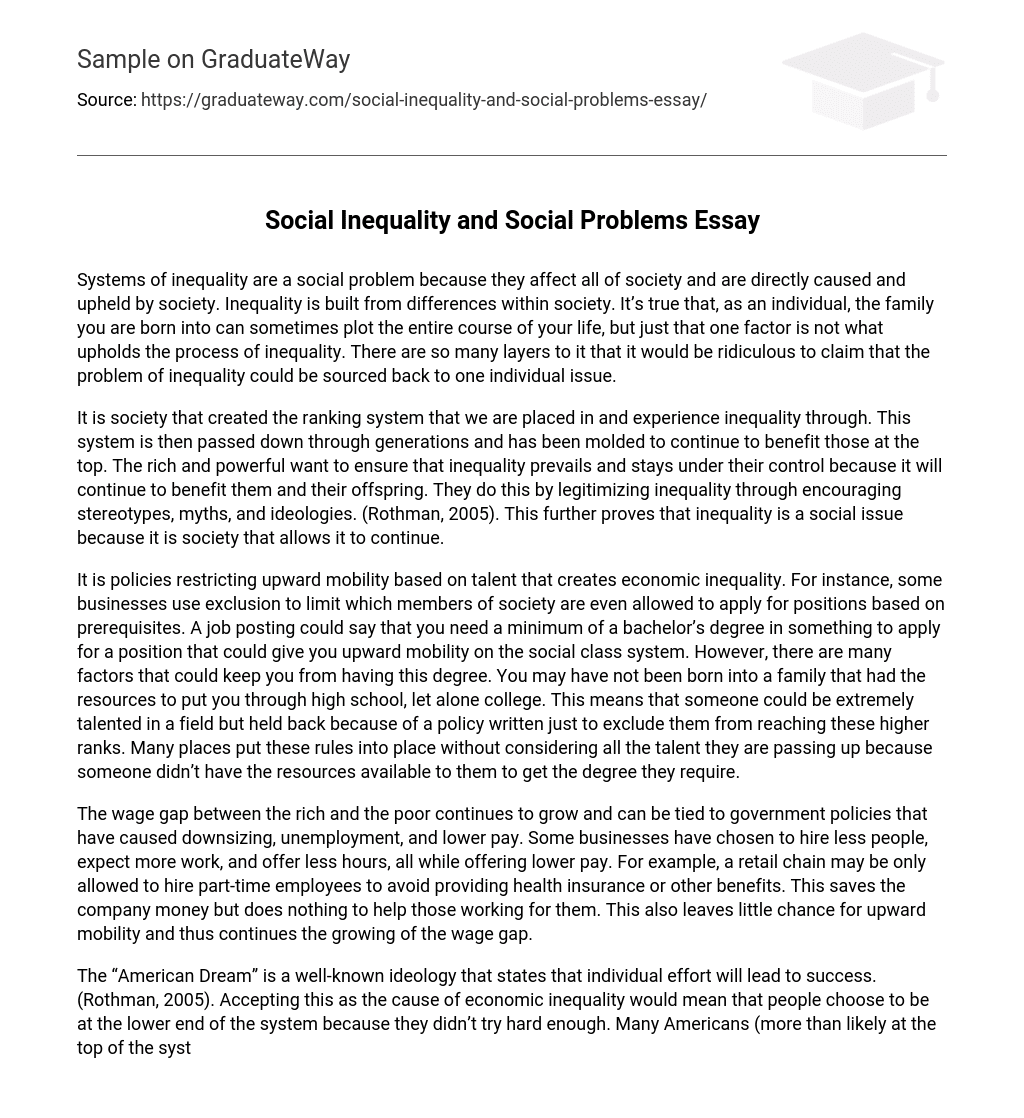Systems of inequality are a social problem because they affect all of society and are directly caused and upheld by society. Inequality is built from differences within society. It’s true that, as an individual, the family you are born into can sometimes plot the entire course of your life, but just that one factor is not what upholds the process of inequality. There are so many layers to it that it would be ridiculous to claim that the problem of inequality could be sourced back to one individual issue.
It is society that created the ranking system that we are placed in and experience inequality through. This system is then passed down through generations and has been molded to continue to benefit those at the top. The rich and powerful want to ensure that inequality prevails and stays under their control because it will continue to benefit them and their offspring. They do this by legitimizing inequality through encouraging stereotypes, myths, and ideologies. (Rothman, 2005). This further proves that inequality is a social issue because it is society that allows it to continue.
It is policies restricting upward mobility based on talent that creates economic inequality. For instance, some businesses use exclusion to limit which members of society are even allowed to apply for positions based on prerequisites. A job posting could say that you need a minimum of a bachelor’s degree in something to apply for a position that could give you upward mobility on the social class system. However, there are many factors that could keep you from having this degree. You may have not been born into a family that had the resources to put you through high school, let alone college. This means that someone could be extremely talented in a field but held back because of a policy written just to exclude them from reaching these higher ranks. Many places put these rules into place without considering all the talent they are passing up because someone didn’t have the resources available to them to get the degree they require.
The wage gap between the rich and the poor continues to grow and can be tied to government policies that have caused downsizing, unemployment, and lower pay. Some businesses have chosen to hire less people, expect more work, and offer less hours, all while offering lower pay. For example, a retail chain may be only allowed to hire part-time employees to avoid providing health insurance or other benefits. This saves the company money but does nothing to help those working for them. This also leaves little chance for upward mobility and thus continues the growing of the wage gap.
The “American Dream” is a well-known ideology that states that individual effort will lead to success. (Rothman, 2005). Accepting this as the cause of economic inequality would mean that people choose to be at the lower end of the system because they didn’t try hard enough. Many Americans (more than likely at the top of the system) would claim that social class has nothing to do with success or failure and that everyone is on equal footing if they extend the effort necessary. (Rosenblum, Travis, 2003).
Of course, talent and effort matter and can affect economic inequality in their own way. If someone has a natural born talent and uses that to push themselves to the top of the system, then it can cause a shift in equality. However, government policies hold opportunity for upward mobility behind locked cages and prevent people from accessing these in a more solid way than fluctuating talent and effort. Not everyone even feels that they should really try to extend the effort because of the effect that policies have within the structure of inequality. The policies in place control what talent gets through and this is why they come in to play more than individual effort.





